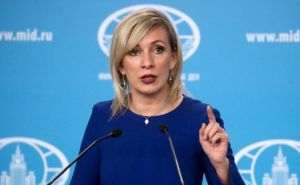Romania doesn't meet any of the four criteria for joining the Eurozone and switching to the Euro, the European Commission said, in its convergence report published yesterday.
This year's report actually shows us that in fact, Romania is in a process of divergence with countries in the Eurozone, said Daniel Dăianu, the president of the Fiscal Council.
He says that Romania is at risk of exacerbating this divergence process and that the government has not paid heed to some basic rules that don't even pertain to the Eurozone accession. He also said that the budgetary discipline and the need for very low internal and external imbalances are vital requirements to be able to compete in the Eurozone, a space which is incomplete in terms of design and correction mechanisms.
Daniel Dăianu said: "There is a thorough study conducted by the ECB which shows, leaving aside the impact of Covid-19, that we were in a divergence process. And we run the risk of exacerbating this divergence process because we have not paid heed to a few basic rules that don't even pertain to the Eurozone accession. Any economy that wants to be strong needs a solid budget, budget balance - which means that in times of economic growth you gather reserves to be able to handle the downward portion of the economic cycle, not to mention the possibility of buffering heavy shocks, or the concern for competitiveness. So not just raising wages... Because there is no point in raising wages to offset within the European Union, if you deepen domestic and foreign imbalances which eventually blow up and force major corrections. We have violated basic principles, not just concerning the Eurozone accession, because budget discipline and the need to have very low domestic and foreign imbalances are vital requirements in order to endure in the Eurozone, which is notoriously incomplete in terms of design and correction mechanisms. So countries which have a competitiveness handicap and develop imbalances do not excel (in the Eurozone), countries in Southern Europe are periodically visited by very difficult periods rife with suffering".
The analysis by the European Central Bank (ECB) and the Commission shows that we have gradually moved away from the EU's targets for joining the Euro in recent years. The report covers in full the seven non-Eurozone Member States that have legally committed to adopting the Euro, namely Bulgaria, the Czech Republic, Croatia, Hungary, Poland, Romania and Sweden, but in our specific case, it provides a comprehensive picture of the imbalances that have accumulated in Romania and the long road that Romania has to travel to reach the adoption of the euro.
The report shows that the average inflation in Romania during the 12 months to March 2020 was 3.7%, well above the European benchmark of 1.8%, and that on April 4, the Council opened the excessive deficit procedure against Romania, for its 4.3% deficit of 2019. The Commission also indicates 2022 as the deadline for the correction of the excessive deficit and notes that the authorities have continued, over the years, the practice of derogating from the fiscal responsibility law. At the same time, the analysis highlights that Romania (along with the other 6 states) does not meet the exchange rate criterion (on-participation in the Exchange Rate Mechanism II - ERM II) and highlights the controlled float regime of the leu that allows NBR interventions. The criterion of convergence of long-term interest rates is not met by our country either, which is also said to have registered a negative balance of payments in 2017 (for the first time in five years), followed by a further deterioration to -3, 3% of GDP in 2019, the weakest of the countries analyzed in the report.
The unpredictability of regulations is also brought up, together with the fact that legislation in Romania, specifically Law no. 312/2004 concerning the Status of the National Bank of Romania (the Law of the NBR), is not entirely compatible with the EU Functioning Treaty, specifically with the articles therein which concern the independence of the Central Bank, monetary funding and Eurozone integration.
The Commission also points out that the impact of the coronavirus pandemic on the results of the report has been limited, as most of the historical data used in the report refers to the period before the crisis broke out.
According to Daniel Dăianu, Romania now also risks losing some of the structural convergence accumulated in recent years. Dăianu also states, however, that the recovery of the economy will become visible in the third quarter, but the level reached at the end of 2019 will be recovered only in 2021: "We should not even be surprised by this report because we had some years where the nominal convergence was visible, but it was not accompanied by structural convergence. Now we are in a situation where we have nominal divergence, on all fronts, and we risk partially losing the structural, real convergence, measured by income / capita.
Because we need to start a process of correcting the imbalances, even if the fight with Covid will not end in 2020 and even if we have a recovery of the economy. Which will be, it will be seen from the third quarter, there will be a process of economic recovery, but only in 2021 will we reach the level reached at the end of 2019. And the economy will be weakened anyway, I think we will have difficulties with budget revenues. Companies will be weakened and we will have a tendency to pay fewer taxes".
The President of the Fiscal Council also added that anyone who comes to power after the next parliamentary elections will have an extremely difficult mission in correcting the macroeconomic imbalances accumulated in recent years.
I say this convergence report is even more important than the rating maintained by S&P, because S&P has simply remained aligned with Moody's and Fitch, with all three ratings firms saying that if there are reckless actions and we do not take care of the health of public finances, they will perform a downgrade. And what the Commission is saying, what the ECB is saying, is that we are in a process of divergence.
It doesn't help to have income convergence, and it is a convergence of the median income because at purchasing power parity, inequalities remain high, but this nominal convergence can be, like you could say, and I will use a crude word, reversed by a correction process. So everything should be played moderately rather than sacrificed, because whoever is in charge of the government, after the elections, will have a very, very difficult mission, and that correction will be no less difficult than the fight against the coronavirus", said Daniel Dăianu.
• Aurelian Dochia: "Romania will benefit from this loosening and we will prolong the"disease"for several years"
We know that we do not meet the criteria, and from the point of view of joining the Euro, the report is not very relevant because we are not on the brink of accession, according to economist Aurelian Dochia. Regarding the correction of the budget deficit, he told us that the process will be one that will last several years, and that at the European level there will not be much pressure for a recovery and normalization of short-term budget balance, given the Covid crisis.
Aurelian Dochia further told us: "Romania has seen postponements and hesitations when it comes to joining the Eurozone, so I don't see (the report) having consequences. (...) Undoubtedly, in 2020 there will be no major moves in terms of taxes and duties, we will see after 2021 what happens.
At any rate, the correction process will be one that will take several years, it also depends a lot on the stance of the European Union and the European Commission, because, obviously, for the time being, all the criteria that were previously stricter have been loosened due to the crisis and the pandemic, especially where budget deficits are concerned, and this is likely to continue after 2020, because many countries will not be able to reach balance and achieve a deficit below 3% of GDP in 2021 either.
"Romania will benefit from this loosening and we will prolong the"disease" for several years". What will happen remains to be seen, because globally, we are going through an unusual moment.
The entire orthodoxy concerning fiscal discipline, taxes, government intervention in the economy is being turned upside down right now, theories are appearing such as modern monetary theory, which tries to justify the perpetuation of long term budget deficits. So I do not know how high the pressure will be to recover and normalize budget balances shortly. As long as we will be able to borrow, we probably will".
Convergence Reports are drawn up every two years by the European Central Bank and the European Commission, placing increasing emphasis on the real convergence.
Thus, in the run-up to the adoption of the single currency, the national economy must make the necessary adjustments for integration into the Eurozone, marked by extensive structural reforms, with effects on its overall competitiveness. It should also be mentioned that on the date of drafting of the Convergence Report of 2018, Romania only met part of the nominal convergence and legal convergence criteria.
The Convergence Program states that Romania maintains its commitment to join the Eurozone, having set 2024 as its target.
How the other countries that want to join the Euro have performed, according to the report:
- Croatia and Sweden meet the criterion on price stability;
- Bulgaria, the Czech Republic, Croatia, Hungary, Poland and Sweden meet the criterion on public finances;
- Bulgaria, the Czech Republic, Croatia, Hungary, Poland and Sweden meet the criterion on long-term interest rates;
- None of the Member States mentioned fulfills the exchange rate criterion, as none of them is a member of the exchange rate mechanism (MCS II): it takes at least two years to participate in the mechanism, without serious tensions, before joining the Eurozone.
Therefore, Croatia and Sweden fulfill all the criteria of economic convergence, but they do not meet the exchange rate criterion for the reason stated above.
In addition to assessing the formal conditions for joining the Eurozone, the report finds that the national legislation in each of the Member States listed, with the exception of Croatia, is not fully compatible with the rules of the economic and monetary union.
There are four economic convergence criteria for joining the Euro:
1. Price stability
The inflation rate may not be exceed by more than 1.5 percentage points the rate of the 3 best performing Member States.
2. Solid and sustainable public finances
The budget deficit may not be higher than 3% of the GDP. Public debt may not be higher than 60% of the GDP.
3. Exchange rate stability
The applicant country must participate in the exchange rate mechanism (ERM II) for at least 2 years without significant deviations from the ERM II exchange rate and without a devaluation of the bilateral central exchange rate of its currency against the euro over the same period.
4. Long-term interest rates
The long - term interest rate may not be more than 2 percentage points above the rate of the three best performing Member States in terms of price stability.
Requirements for adapting national legislation:
Applicants for accession to the Eurozone must ensure that their national laws and regulations provide for the independence of their national central banks and that their statutes comply with the provisions of the Treaties and are compatible with the Statute of the European Central Bank (ECB) and the European System of Central Banks (ESCB).


















































